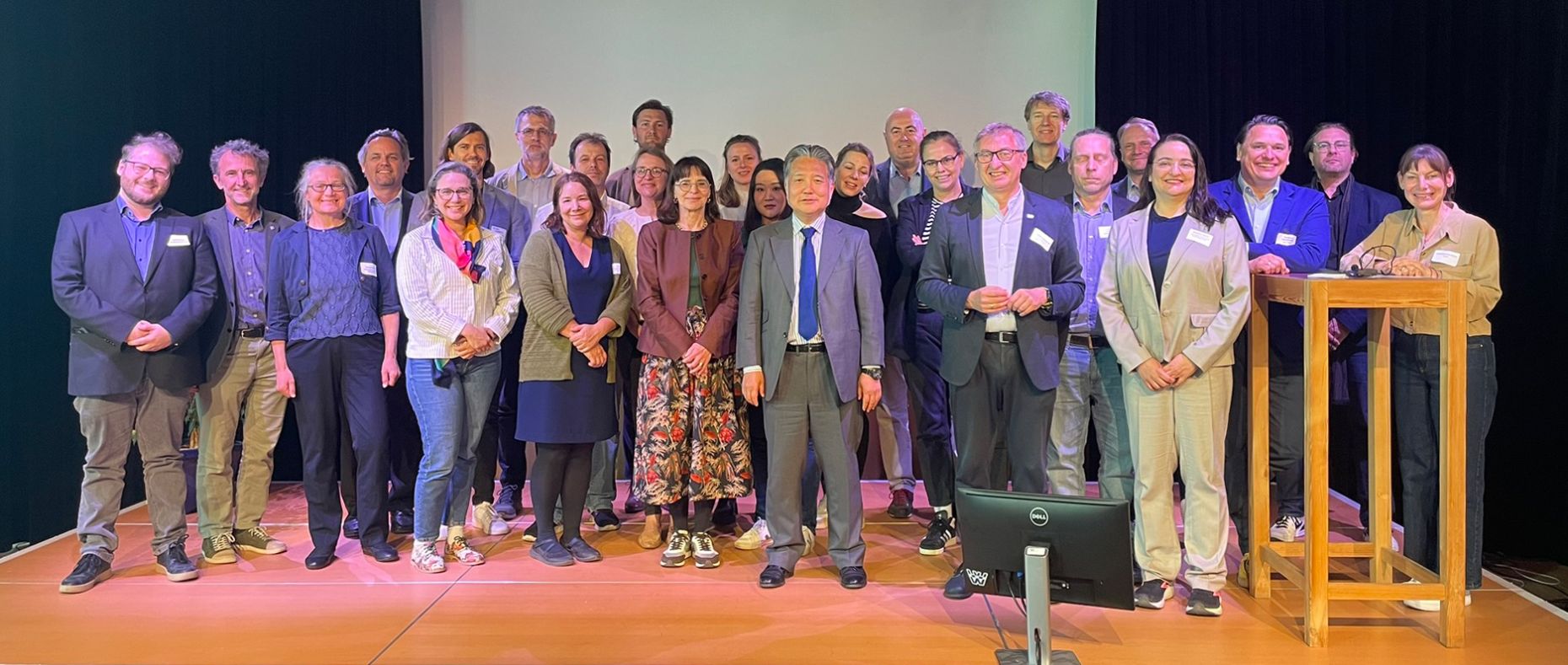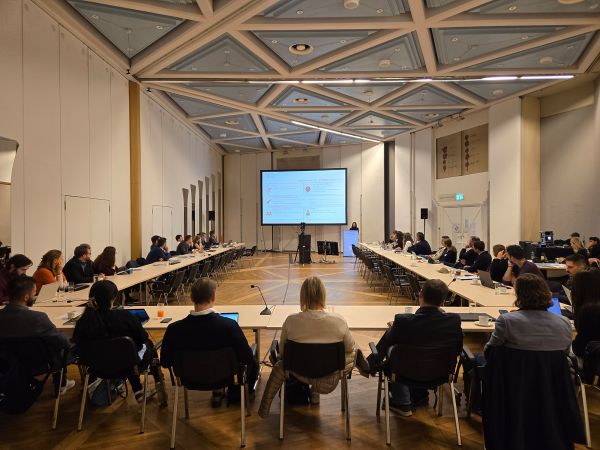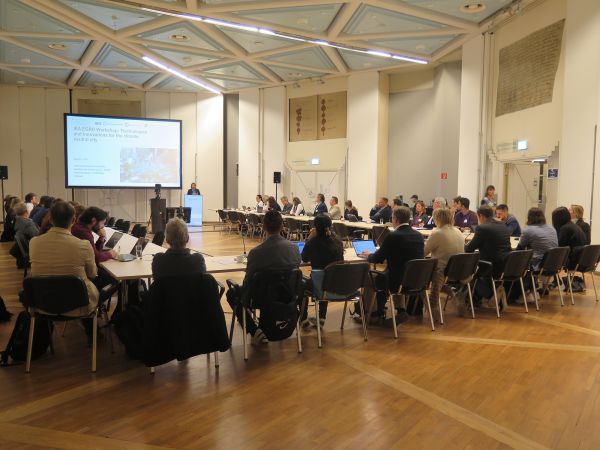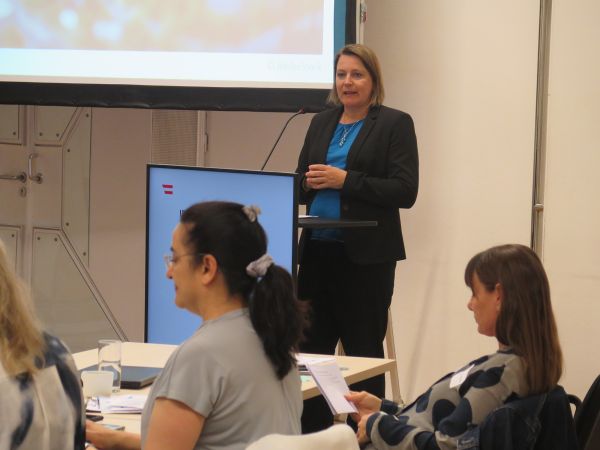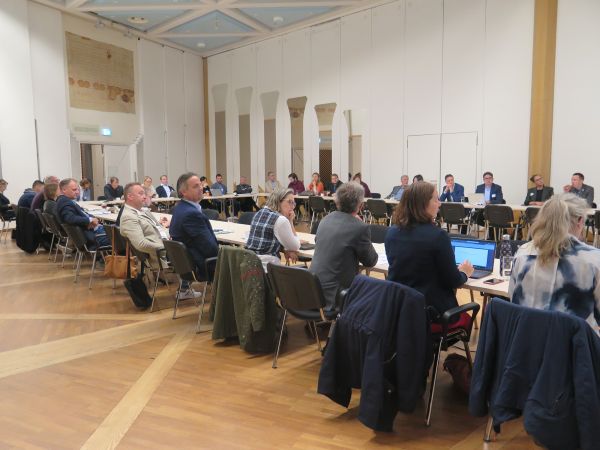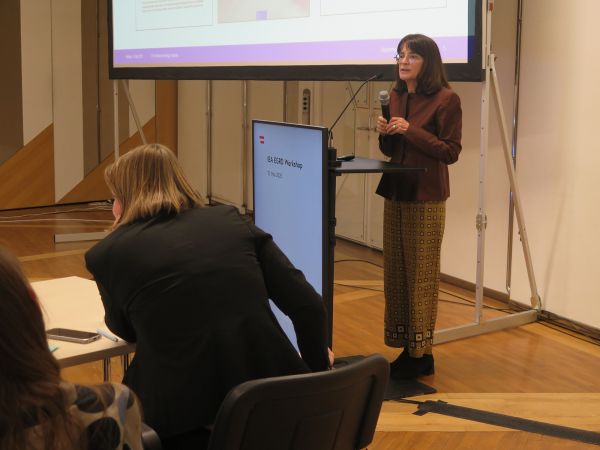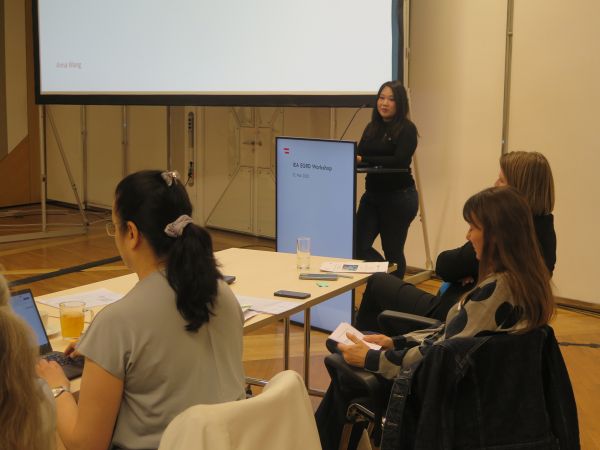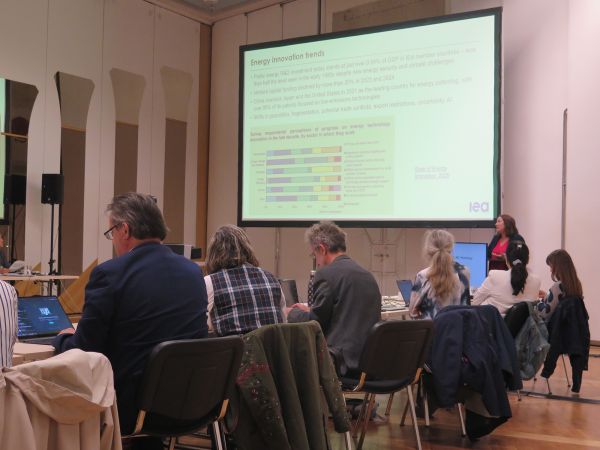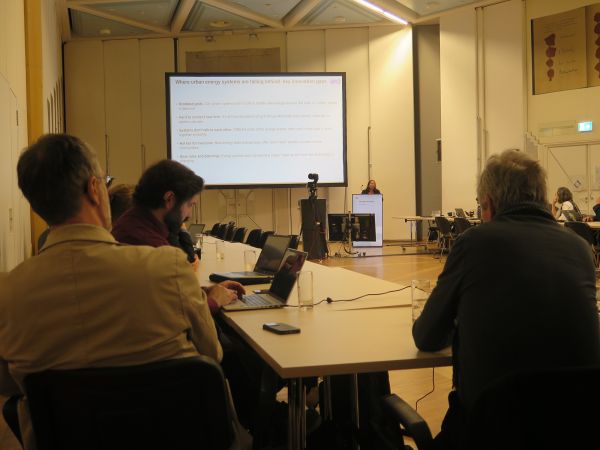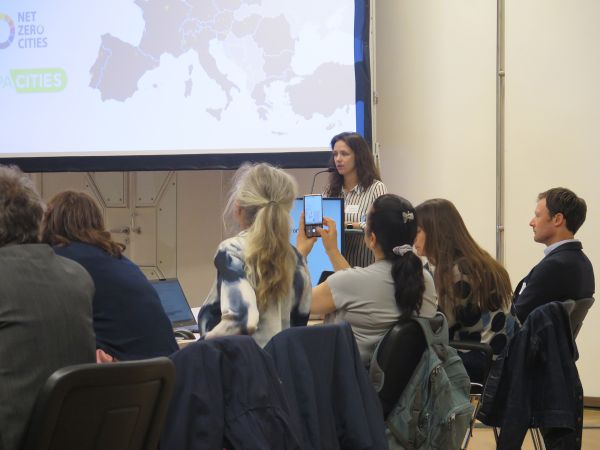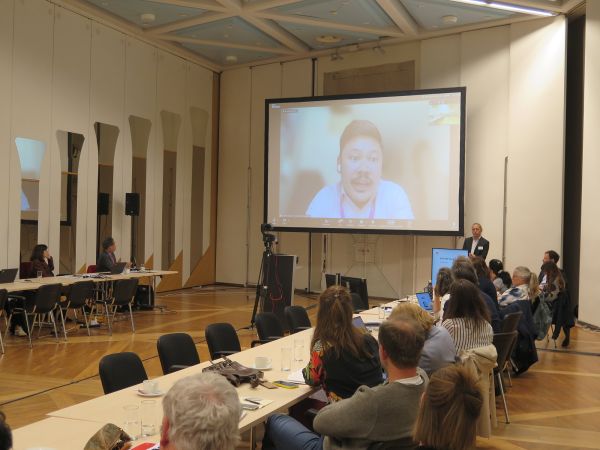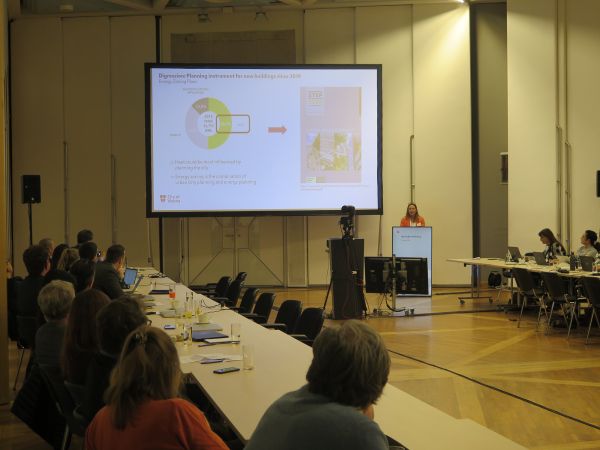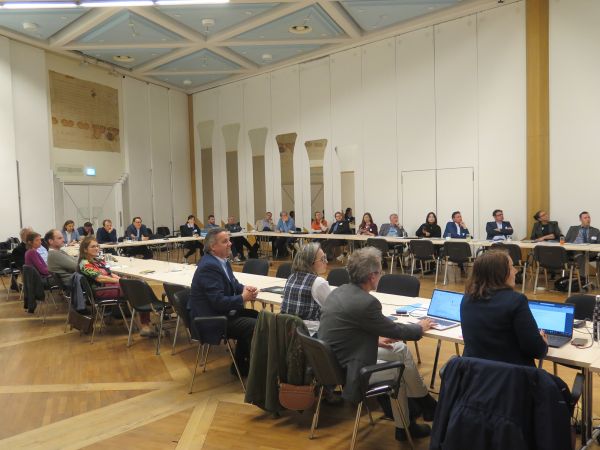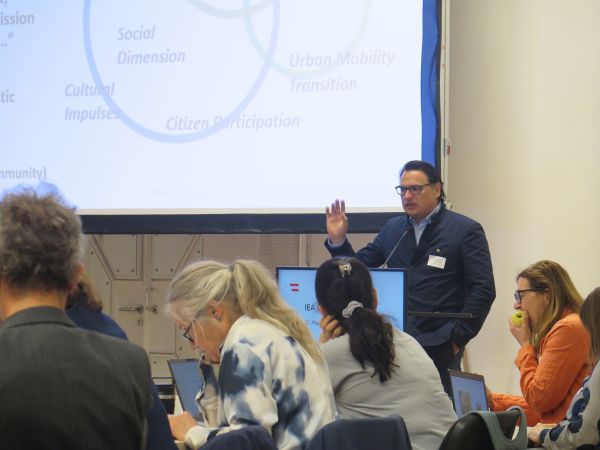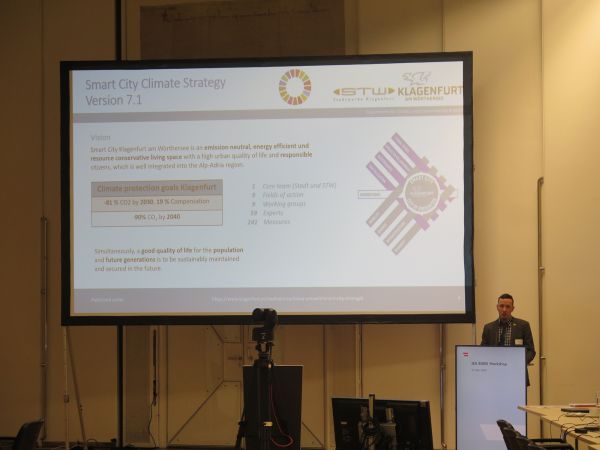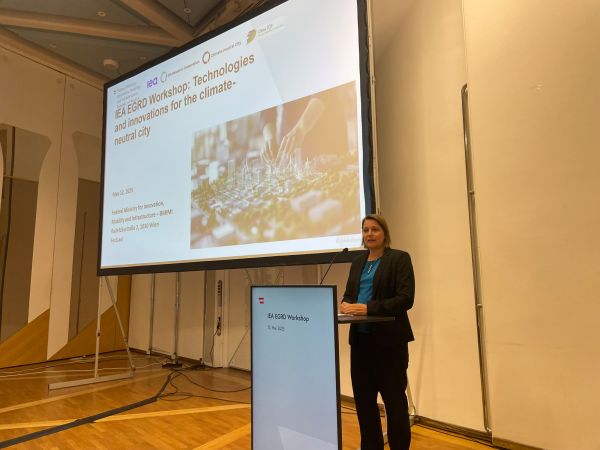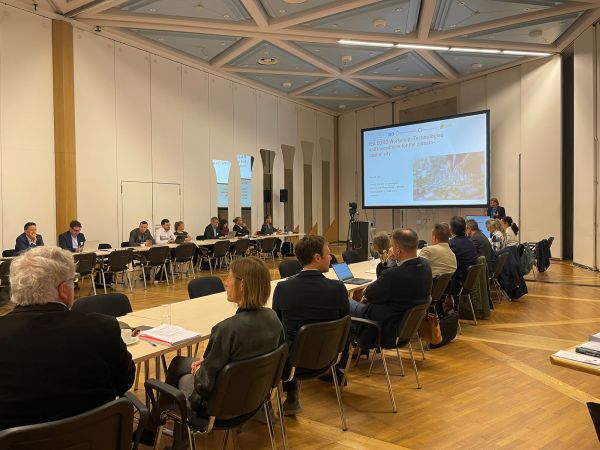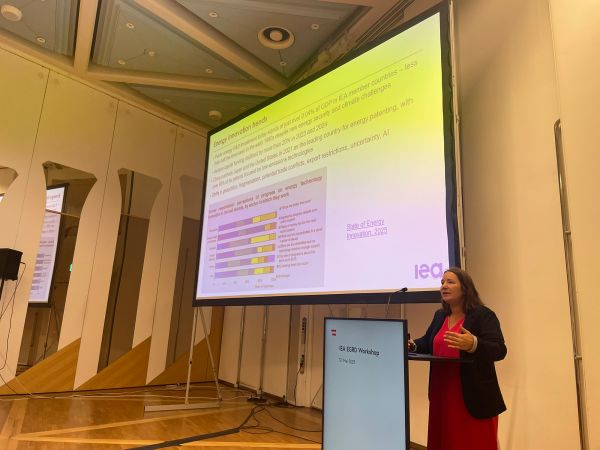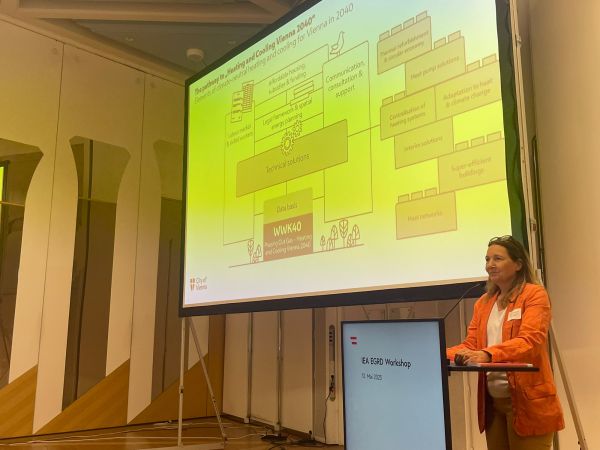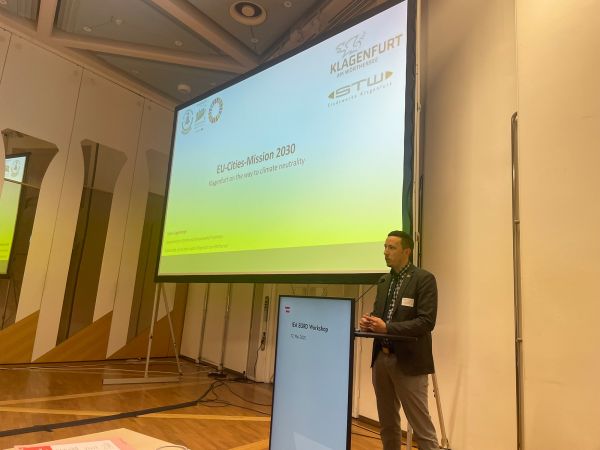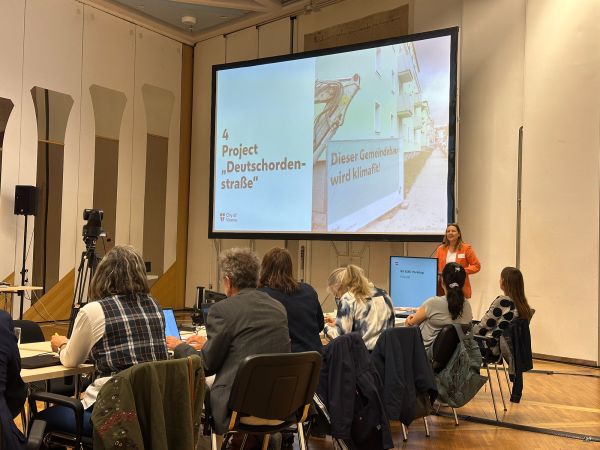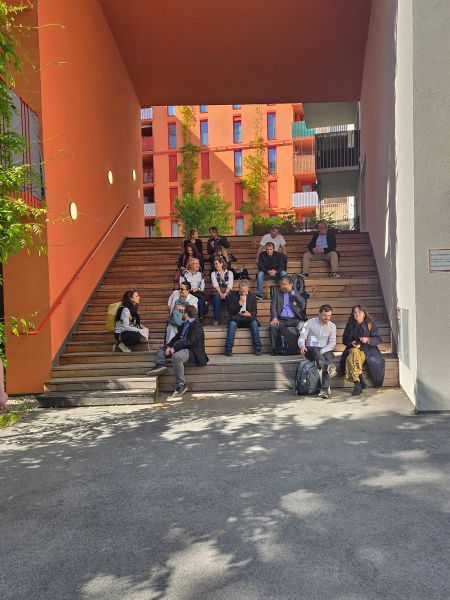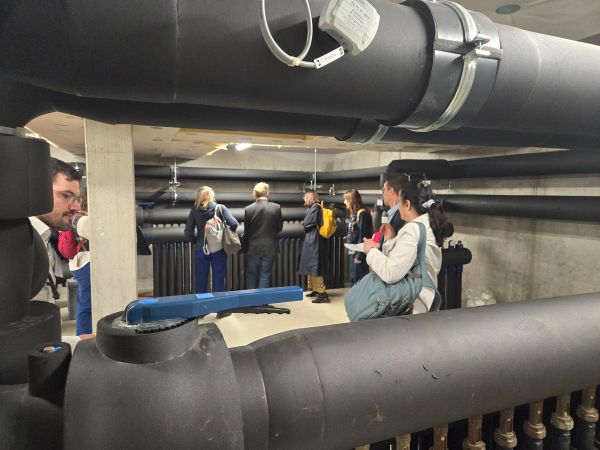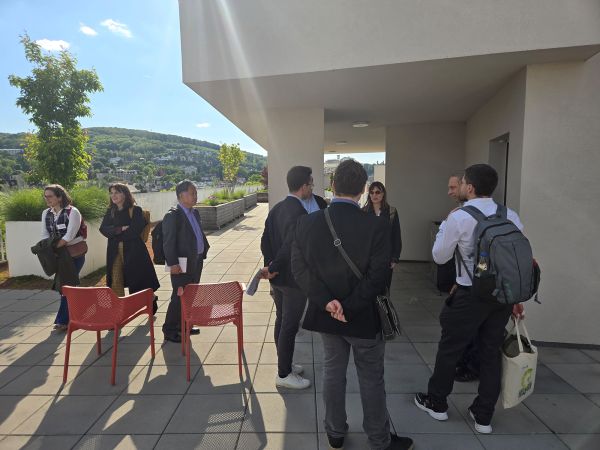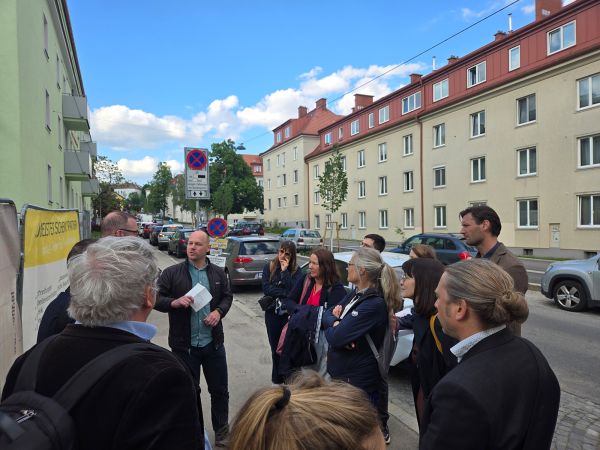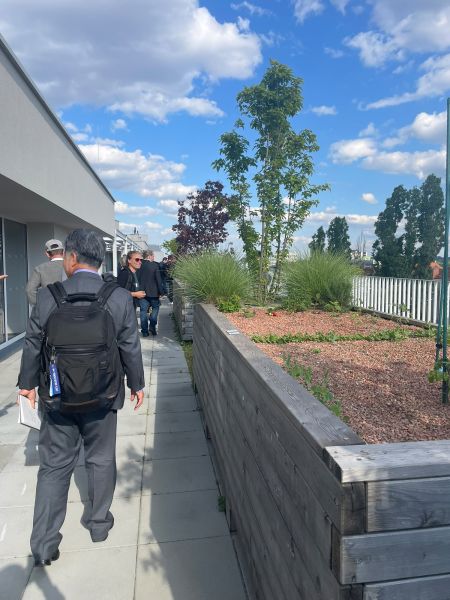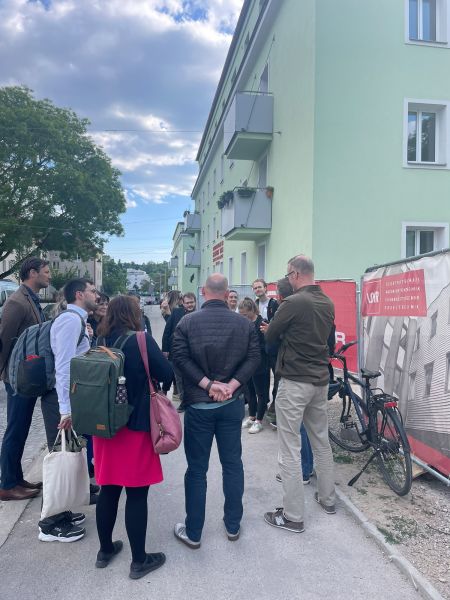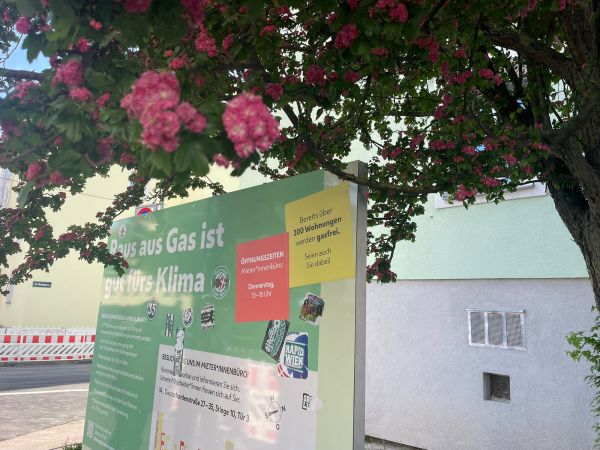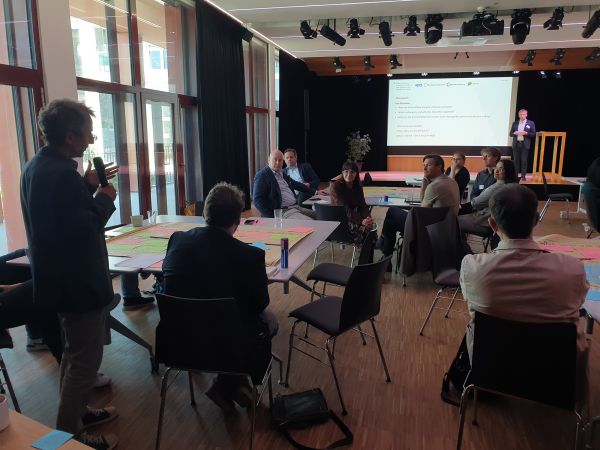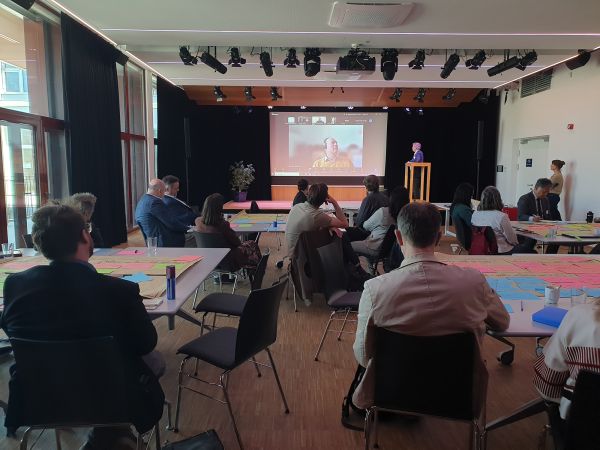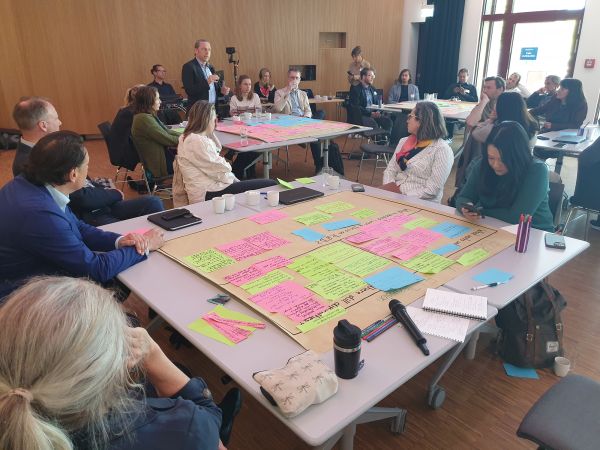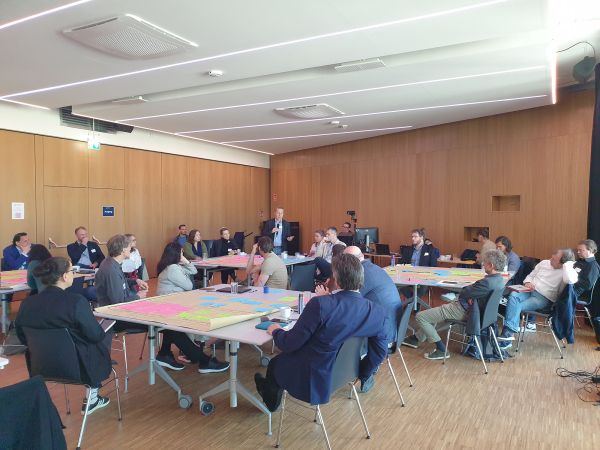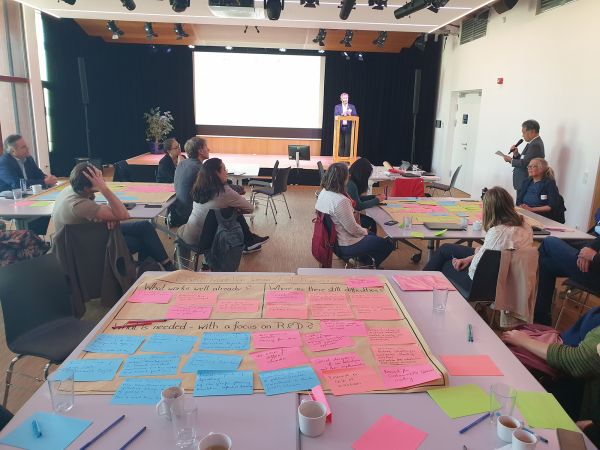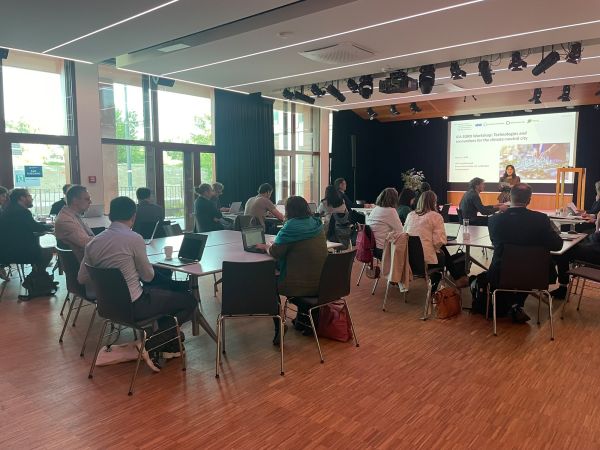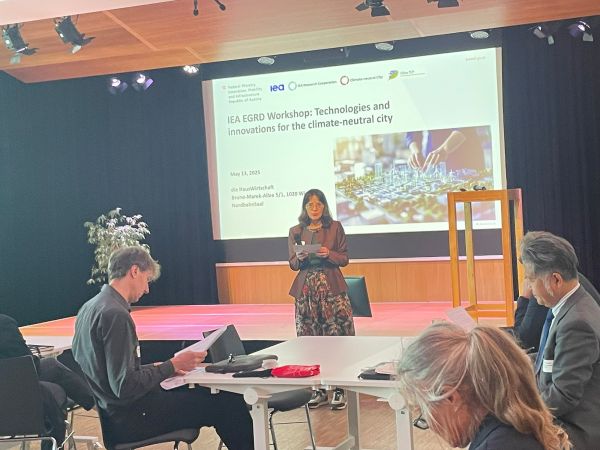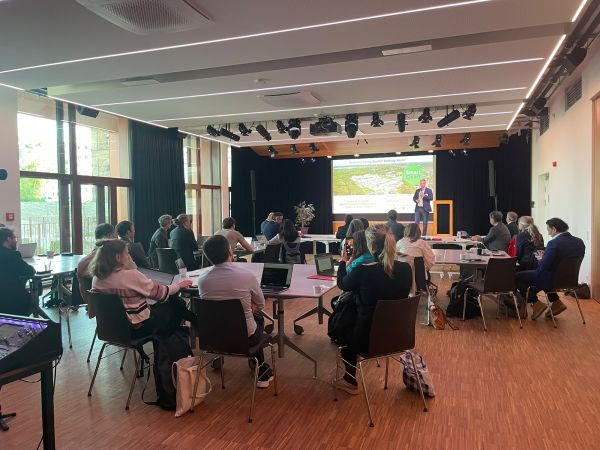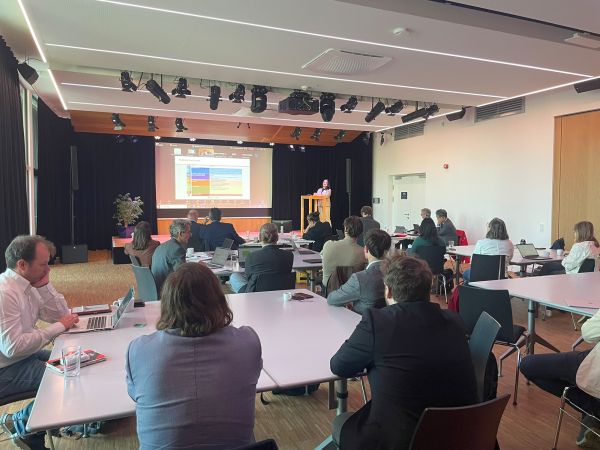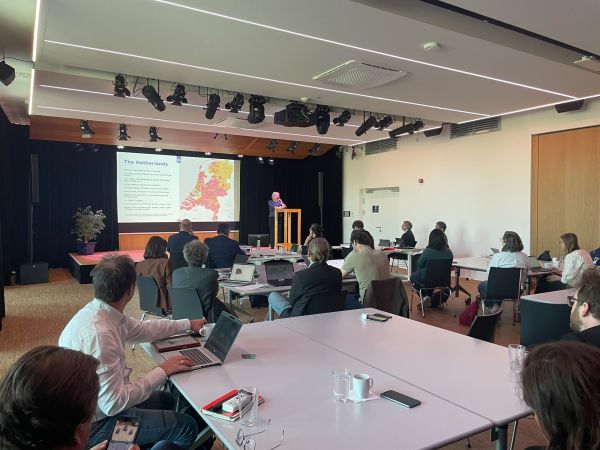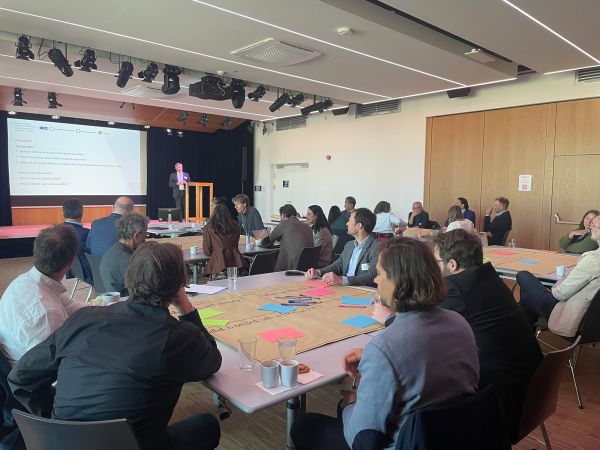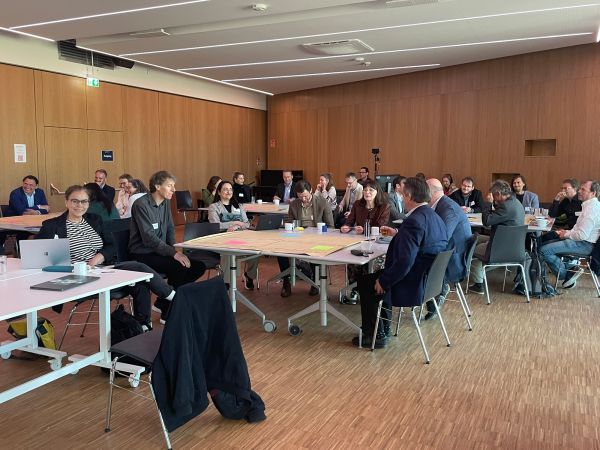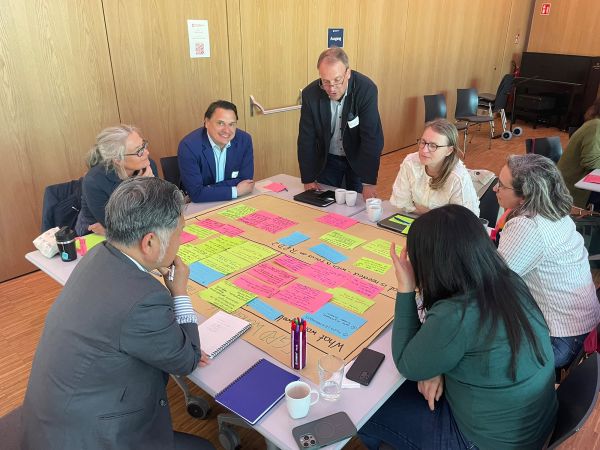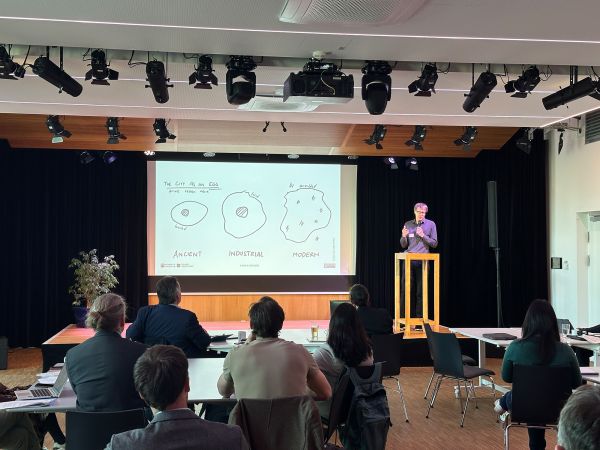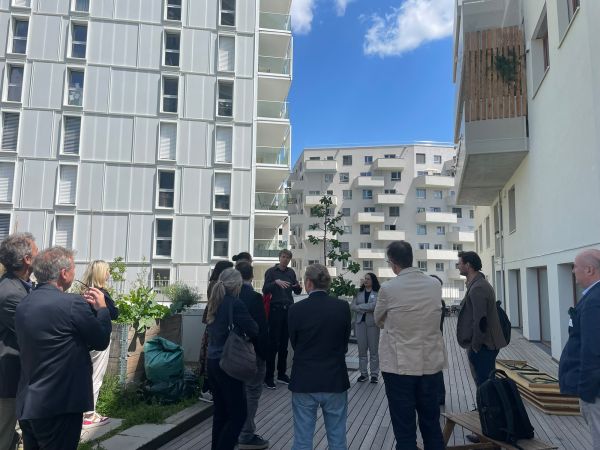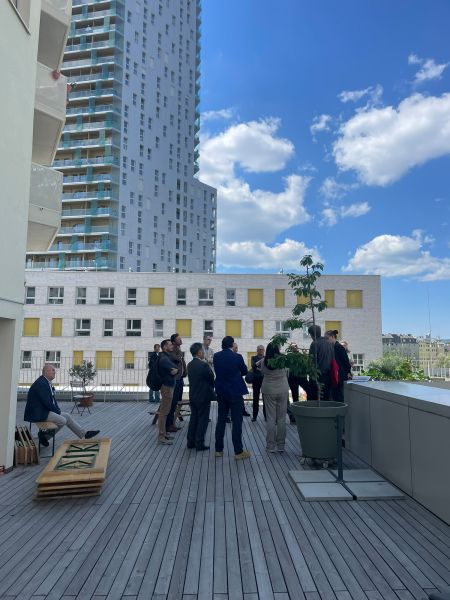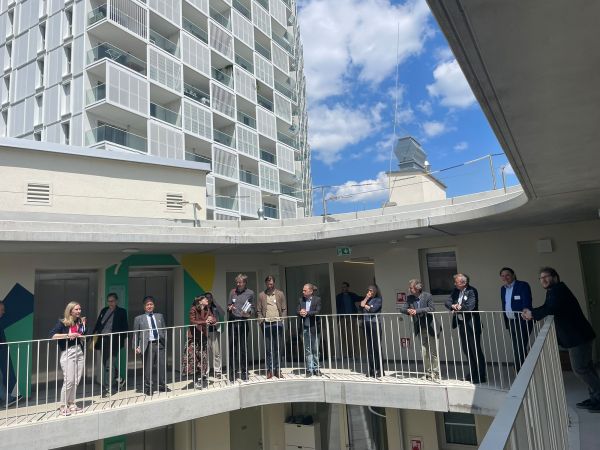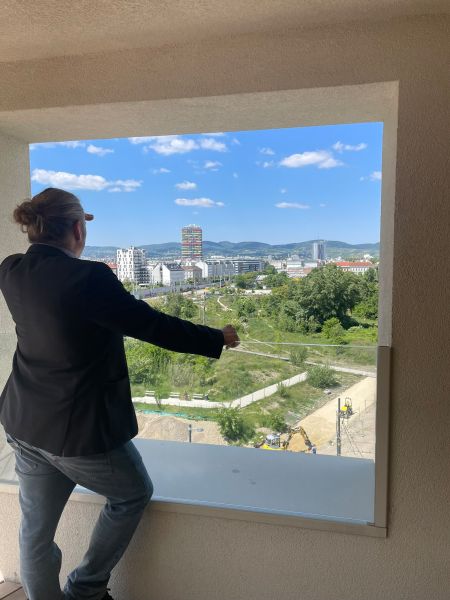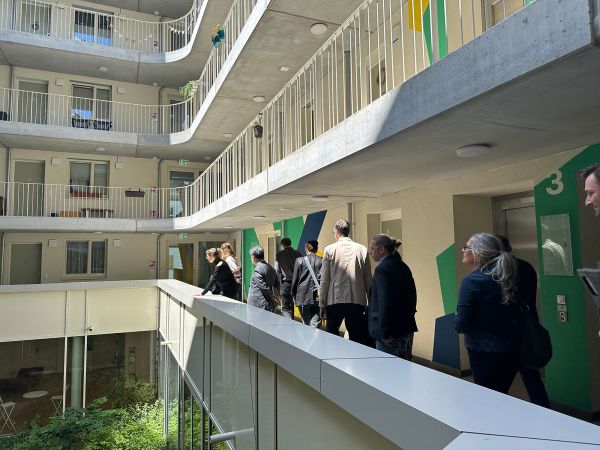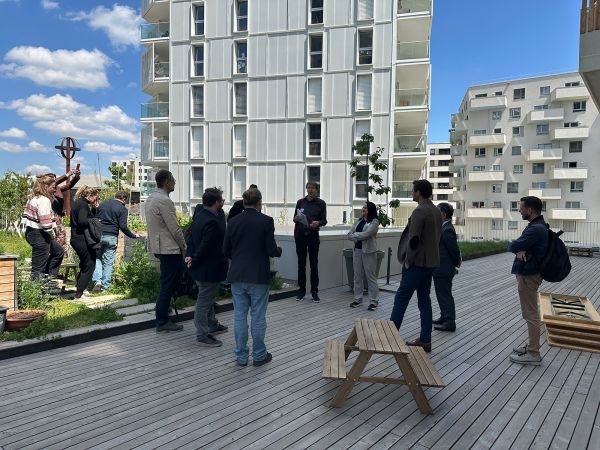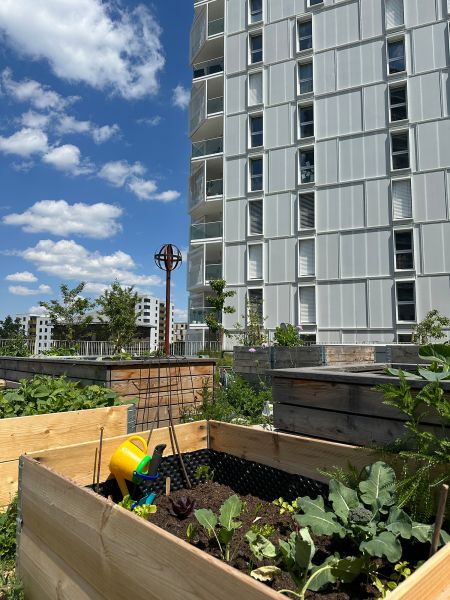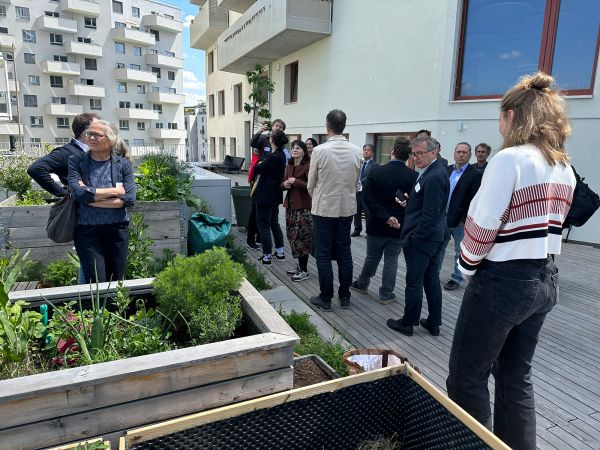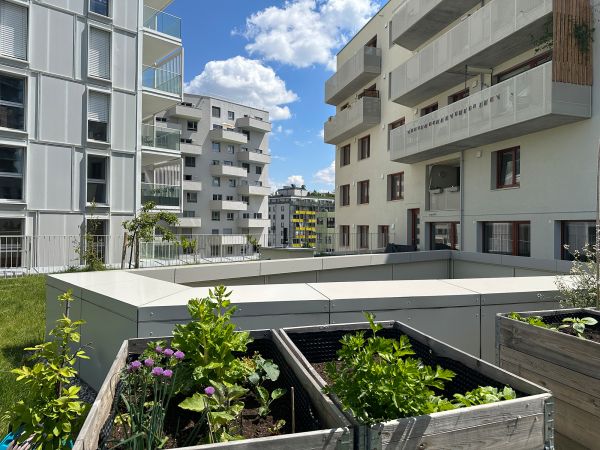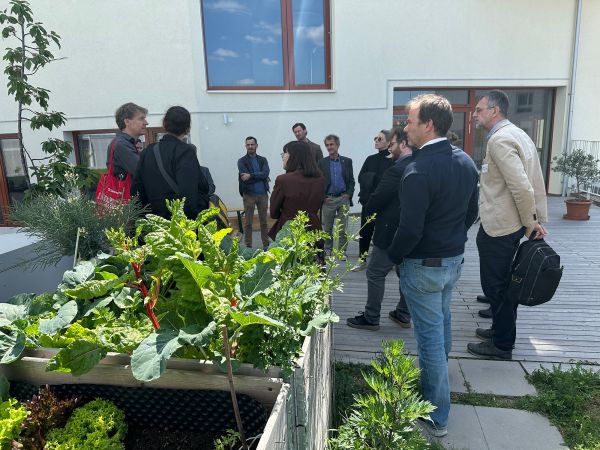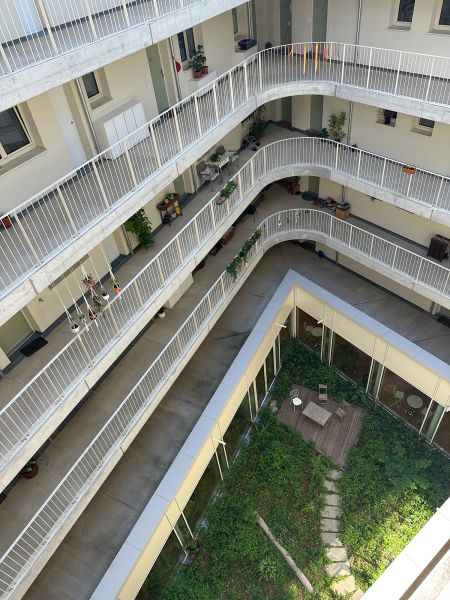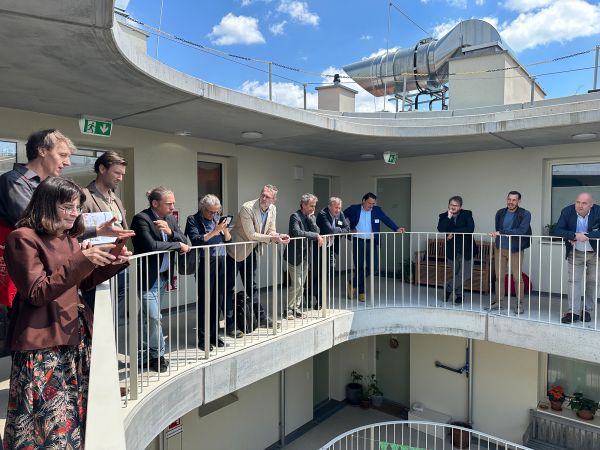IEA EGRD Workshop: Technologies and innovations for the climate-neutral city
Organizer
The event was organized by the IEA Experts Group on R&D Priority-setting and Evaluation (EGRD) in collaboration with the Austrian Federal Ministry for Innovation, Mobility and Infrastructure (BMIMI) and the "Decarbonization of Cities and Communities" program (IEA Cities TCP).
Documentation
On 12–13 May 2025, the IEA Experts Group on R&D Priority-setting and Evaluation (EGRD) organized a hybrid workshop on Technologies and Innovations for the Climate-Neutral City, in collaboration with the IEA Technology Collaboration Programme on Decarbonising Cities and Communities (Cities TCP), and hosted by the Austrian Ministry of Innovation, Mobility and Infrastructure (BMIMI).
The following key questions were addressed:
- How can cities achieve the goal of climate neutrality? What are the main challenges and risks involved?
- What are the resilient transformation pathways for future system innovations?
- New technologies and business models: Where do we currently stand, and what is still needed?
- Which instruments and activities should be supported? What are the primary factors to consider when shaping R&D policies and decision making?
The workshop focused on technologies and system innovations that contribute to the progress of climate-neutral and resilient cities, neighbourhoods, and buildings. Experts from a wide range of disciplines—including EGRD members, social scientists, behavioural economists, RD&D programme managers, urban planners and local authorities—shared policy approaches, research priorities, and best practices, offering strategic insights as well as grounded, local perspectives from across Europe and Asia.
Throughout the two-day exchange, participants discussed practical examples and forward-looking strategies for urban transformation. Case studies from Vienna, Graz, Klagenfurt, Tokyo, Iskandar, and the Netherlands demonstrated how cities are tackling key challenges such as the decarbonisation of heating, inclusive energy planning, digitalisation, and citizen engagement. Site visits in Vienna provided additional insights into innovative approaches to social housing, cooperative urban development, and integrated energy systems.
The workshop showed that while many solutions already exist, their widespread adoption depends on effective collaboration between all levels of government, research institutions, and civil society. Aligning technology, governance, and social innovation remains essential to building cities that are not only climate-neutral but also resilient, liveable, and inclusive.
Download
Program
Time zone: CEST (UTC +2)
Agenda Day 1 (12. May 2025)
Location: BMIMI, Radetzkystraße 2, 1030 Wien, Festsaal
- 08:30 Registration and coffee/tee
-
09:00 Welcome and Opening remarks
Sabine Mitter, Federal Ministry for Innovation, Mobility and Infrastructure - BMIMI- About EGRD and the Workshop
Birte Holst Jørgensen, Chair EGRD
Presentation slides - Mission "Climate-neutral City" - Getting Austria's towns and cities fit for the future
Anna Wang, Federal Ministry for Innovation, Mobility and Infrastructure
Presentation slides - Cities TCP – Decarbonization of Cities and Communities
Helmut Strasser, Salzburger Institute for Regional Planning and Housing, chair of the cities TCP IEA Cities
Presentation slides
- About EGRD and the Workshop
-
09:35 Session 1: Setting the scene: Vision - What should climate neutral cities look like in 2050
Facilitator: Birte Holst Jørgensen
- Smaller, lower, slower, simpler: low tech, low cost solutions for a sustainable future
- David Sim, Architect SAR/MSA, FRIAS
- Resilient Cities
Nicola Tollin, University of Southern Denmark, Resilient cities - Action planning for climate neutral cities in Europe: From the Covenant of Mayors to the Mission on 100 climate neutral and smart cities
Paula Bezerra, EU Commission - Discussion
-
11:00 Coffee Break
-
11:25 Session 2 - What do we need to achieve the vision?
Facilitator: Johannes Tambornino
- Empowering Urban - Energy Transitions Smart cities and smart grids
Vida Rozite, Energy Policy Analyst at International Energy Agency (IEA)
Presentation slides - Global Covenant of Mayors for Climate and Energy (GCoM)
Benjamin Jance, Co-Managing-Director, Global Covenant of Mayors for Climate and Energy (GCoM)
Presentation slides - From Research to Resilience: Driving Urban Transitions through a Transnational R&I Partnership
Orsolya Küttel, CEO Driving Urban Transitions Partnership
Presentation slides - Key technologies for carbon neutrality in warm cities
Yoshiyuki Shimoda, Professor at Osaka University and Director-general/RITE
Presentation slides - Discussion
- Empowering Urban - Energy Transitions Smart cities and smart grids
-
12:50 Lunch Break
-
13:40 Session 3 – Showcase regions: Case studies from leading smart and sustainable cities
Facilitator: Atsushi Kurosawa
- Vienna's pathway for phasing out natural gas
Waltraud Schmid, Urban Innovation Vienna
Presentation slides - Driving Decarbonisation and SDG Localization: Insights from Leading Smart and Sustainable Cities in Asia
Junichi Fujino, Principal Researcher at IGES - Institute for Global Environmental Strategies
Presentation slides - 30 Years of integrated, ressource-efficient Urban Development in Graz – Status Quo and Outlook
Christian Nussmüller, City of Graz, Executive Office for Urban Planning, Development and Construction
Presentation slides - Klagenfurt on the way to climate neutrality by 2030 and beyond
Stefan Guggenberger, Climate Neutral City Klagenfurt
Presentation slides
- Vienna's pathway for phasing out natural gas
- 14:40 Discussion
-
15:25 Drinks & Snacks
-
15:30 Technical Tours
- 100% renewable heating and cooling supply in social housing - the demonstration Project Käthe-Dorsch-Gasse 14, 1140 Vienna
Simon Handler, ha.con - Demonstration Project "Exit from Gas: Deutschordenstrasse", 1140 Vienna
Robert Freund, Urban Innovation Vienna
Thomas Schuster, City Government of Vienna
- 100% renewable heating and cooling supply in social housing - the demonstration Project Käthe-Dorsch-Gasse 14, 1140 Vienna
-
17:25 End of event
Agenda Day 2 (13. May 2025)
Location: die HausWirtschaft, Bruno-Marek-Allee 5/1, 1020 Wien, NordbahnSaal
- 08:30 Registration and coffee/tee
-
09:00 Session 4 - Research for Climate-Neutral Cities: Innovations for a Sustainable Future
Facilitator: Herbert Greisberger, Energy and Environment Agency of Lower Austria
- Urban transformation through research and development: How to recognise the key role of social innovation
Christian Peer, Senior Scientist future.lab Research Center, Faculty of Architecture and Planning, Vienna University of Technology
Presentation slides - Green, local, digital = quarter-concept of Bedburg Kaster: Proven as a Role-Model?
Arndt Brauckmann, E.ON Energy Solutions GmbH
Presentation slides - IEA EBC Annex 83 on Positive Energy Districts: research activities, outcomes and future research
Francesco Guarino, University of Palermo, Department of Engineering, Assistant Professor
Shokufeh Zamini, AIT Austrian Institute of Technology GmbH
Presentation slides - System demonstrators for climate neutral cities – learnings from a mission-oriented instrument for urban transformation
Björn Svensby Kurling, Vinnova
Presentation slides - Dutch local energy transition: multi level instruments and perspectives
Marion Bakker, Netherlands Enterprise agency (RVO), Policy advisor Energy- innovation Heating and Cooling, Vice chair IEA cities TCP, Delegate IEA Heat pumping technologies TCP
Presentation slides - Discussion
- Urban transformation through research and development: How to recognise the key role of social innovation
-
10:45 Coffee Break
-
11:15 Session 5 – Final discussion: Workshop summary and R&D recommendation
Facilitator: Herbert Greisberger, Energy and Environment Agency of Lower Austria
Concluding session - key messages
-
12:15 Guided Tour: 'Die HausWirtschaft' as a driver of urban transformation
Christian Peer, Head of Urban Transformation Center & Social Innovation Cluster, future.lab Research Center, Technische Universität Wien - 13:15 End of event
Target Audience
The workshop is aimed at professionals from academia, industry, policy, pioneer cities and civil society who are engaged in advancing sustainable urban transformation.
Contact Address
Karin Granzer-Sudra
Austrian Society for Environment and Technology (ÖGUT)
E-Mail: karin.granzer-sudra@oegut.at

